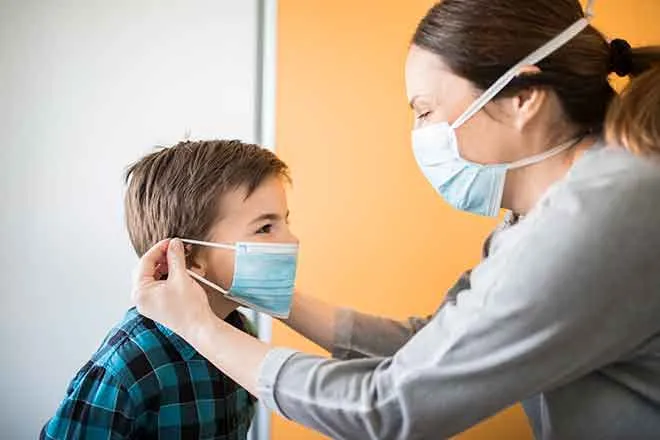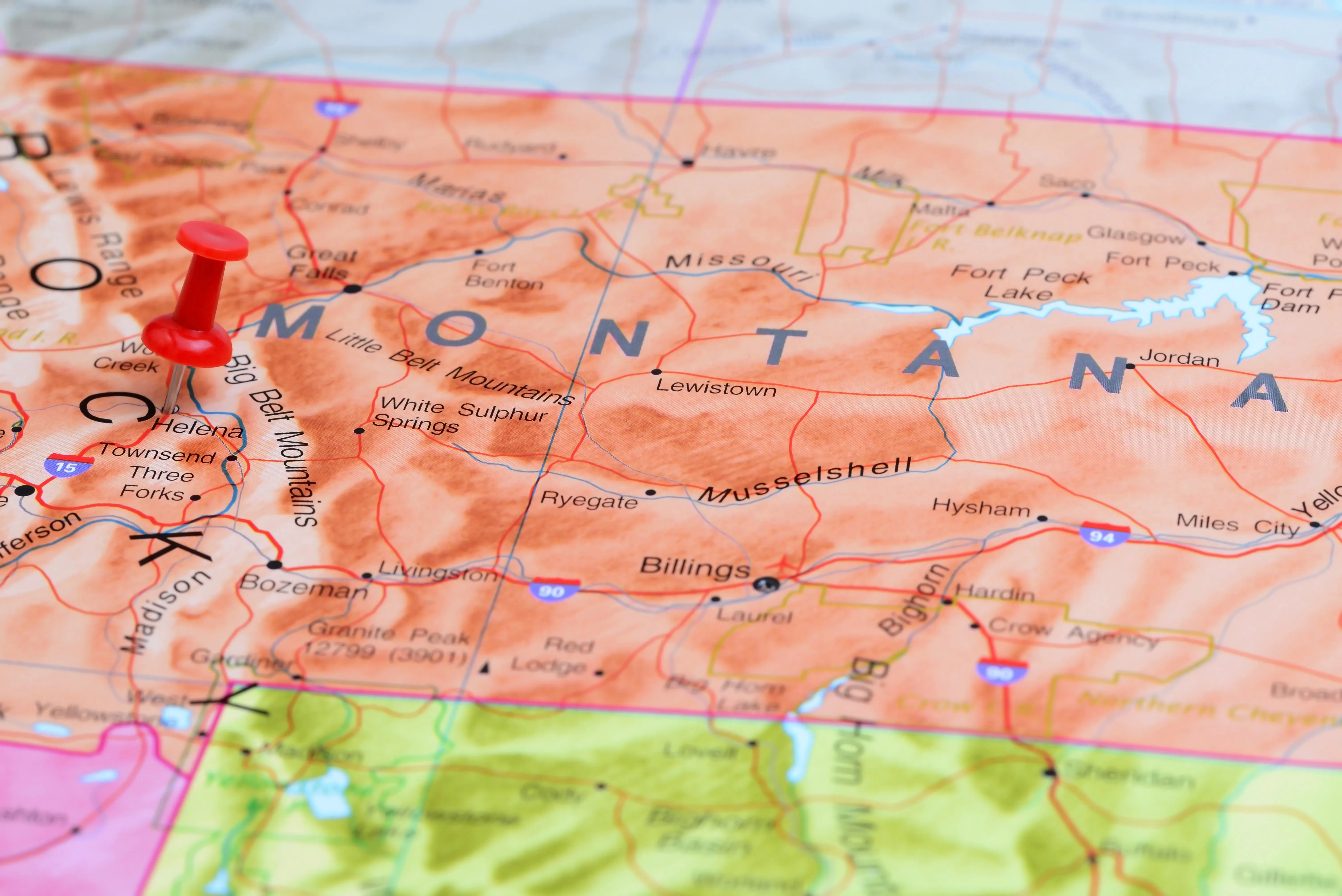
Daily Audio Newscast Afternoon Update - June 5, 2025
© INDU BACHKHETI - iStock-1336427297
News from around the nation.
Trump travel ban sparks World Cup questions and raises more soccer issues; Tobacco use among those in LGBTQ+ community higher than average; New alert system brings oil and gas spill data directly to Colorado residents; Ohio lawmakers propose ban on most noncompete agreements.
Transcript
The Public News Service Thursday afternoon update, I'm Mike Clifford.
On Wednesday night, President Trump signed a travel ban against 12 countries in a move that he described as protecting the national security and national interest of the United States and its people.
That's from the New York Times.
The BBC notes, "The travel ban, which comes into effect on the 9th of June, fulfills a promise Trump made during his 2024 election campaign.
The order exempts athletes and coaches, so it should not affect the FIFA World Cup."
And as Pride Month begins, experts are concerned about rates of tobacco use in the LGBTQ community.
More than 15 percent of lesbian, gay, and bisexual adults smoke cigarettes, compared to more than 11 percent of heterosexual adults, according to Truth Initiative, an anti-tobacco non-profit.
Dr. Kendrick D'Artiste with the group says such disparities have major impacts on the health of people in the LGBTQ community.
Tobacco companies, he adds, also regularly target them in its advertising.
The toll on public health is staggering.
LGBTQ+ youth and young adults use tobacco products at a significantly higher rate than their cisgender and heterosexual peers, and a disparity that really fuels higher rates of disease and as well as premature deaths.
Truth Initiative offers free online quit programs and just started a new program geared towards young people to help them beat their nicotine addiction.
I'm Zimone Perez.
And over the past 12 months, 884 oil and gas spills were reported near homes in Greeley, Fort Lupton, Kersey, La Salle, and Platteville, according to Spilling the Truth, a new public alert system launched by Colorado Rising for Communities.
Data analyst Christiane von Wudenberg with EcoCarto says the goal is to make it easier for residents to know about the risks to agricultural land, livestock, water resources, and community health.
In April alone, 229 spills were reported in Weld County, more than six per day.
The number of spills that we're seeing have just grown so dramatically.
Really in the last month, we've seen again and again record numbers of oil spills reported in Weld County.
The Colorado Oil and Gas Association and Weld County did not respond to requests for comments before deadline.
I'm Eric Galatas.
Next a bipartisan bill in the Ohio Senate could make it easier for workers to switch jobs by limiting the use of non-compete agreements statewide.
Senator William D'Amora, a Democrat from Columbus and co-sponsor of the bill, says it's about fairness especially for younger workers entering the workforce.
These are hurting my constituents disproportionately because they're getting their first jobs out of college and they're trying to pay for school and these non-compete agreements are being used to stifle them moving up into the ranks.
Senate Bill 11 would ban most non-compete clauses which restrict workers from joining a competitor after leaving a job.
This story with original reporting by Caleb Clark for Kent State News Lab, produced in association with Media of the Public Interest and funded in part by the George Gunn Foundation.
This is Public News Service.
Midwives at New York City's Jacoby Medical Center and North Central Bronx Hospital have voted to strike.
The new unanimous strike authorization comes as they've worked with an expired contract for two years.
The negotiations lasted this long because the Physicians Group of New York keeps changing negotiators.
Midwife Roxanne Winston says a strike is their last resort to get Pagni to bargain in good faith.
The lack of investment in the midwifery staff has resulted in a lack of investment, lack of time for our patients and that is a safety issue.
We can't stand idly by.
For us, we're saying enough is enough.
We need to be able to protect our patients.
A 2023 Commonwealth Fund report finds midwives help reduce maternal mortality and maternal health disparities, which are prominent in the Bronx.
Negotiating is challenging since Pagni employs Winston and her colleagues, but New York City's Health and Hospitals Agency is in charge of funding for their proposals.
I'm Edwin J. Vieira.
And as Congress continues to push for cuts in additional work requirements for Medicaid eligibility, experts warn that more Kentuckians could lose access to treatment for substance abuse disorder.
In 2021, more than 54,000 were receiving treatment for opioid use disorder, says Ashley Spaulding with the Kentucky Center for Economic Policy.
She adds the program is critical for people in recovery.
They're getting prescription medications that are evidence-based for treating opioid use disorder.
And if these cuts go into effect, then people are going to lose access to their treatment, to their prescription medications.
Medicaid funding is used for medications like Suboxone and Methadone, harm reduction tools such as Narcan and fentanyl strips, and other community-based services.
According to federal data, last year overdose deaths in the Commonwealth decreased for the third year in a row.
Nadia Ramligan reporting.
Finally, research indicates that living shorelines are more effective at protecting Florida's fragile coastal areas from the wave action of hurricanes and other major storms than artificial structures.
The study analyzed the results of shorelines in the regions around Cedar Key, an island off Florida's nature coast, during Hurricane Idelia in 2023.
Researchers found that living shorelines reduce wave energy and storm surge by 28 percent in hurricane environments.
Savannah Berry, a marine biologist and co-author of the study, says it demonstrates that natural barriers can be more effective than artificial structures.
Living shorelines basically restore a gradual slope from the dry land to the ocean.
That shoaling natural slope along with all the complexity of the biological components is what slows down current and wave energy.
The study found that living shorelines, typically constructed from recycled oyster shells or other materials, better protect communities from storm surge, sea level rise, and erosion.
I'm Tramiel Gomes.
This is Mike Clifford for Public News Service, member and listener supportered.
Find our trust indicators at publicnewsservice.org. org.
















